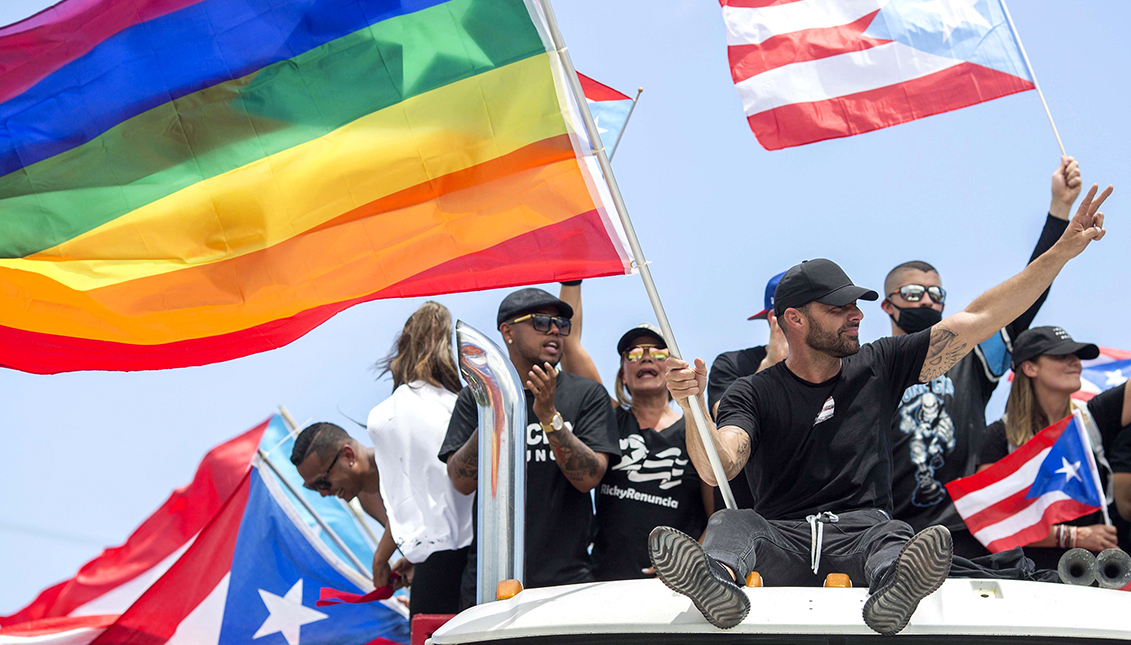
Puerto Rico's new civil code "marks" trans people
Puerto Rican activists warn that a bill on LGBTQ rights approved last week contains serious loopholes that put the community at risk.
There are ways of twisting a word to the point that it erases a historical landmark decision, or even worse: a sowing of contradictions.
Last Thursday's approval by Puerto Rico's House of Representatives of a set of civil laws to protect the rights of LGBTQ people beyond being seen as a victory is for some legal experts, is viewed by activists and members of the opposition as a double-edged sword that could fuel further discrimination against trans people.
"The previous civil code of Puerto Rico is from 1930 - it was totally and completely obsolete," New Progressive Party Rep. Jose Melendez told Reuters.
For Meléndez, not only did the old code not reflect key U.S. Supreme Court decisions, but it used language contrary to LGBTQ rights. "What we are doing is updating it," he said.
"At first glance it seems that there is nothing wrong, but if you scratch the surface, there is an obvious intention to discriminate."
Some of these language changes relate to marriage described as a contract between "two people" rather than between a man and a woman, reflecting the Supreme Court's decision to legalize gay marriage in 2015.
However, both opponents of the Wanda Vazquez's government and some legal scholars describe the wording of the new text as "ambiguous" and "contradictory," which could result in greater legal obstacles for trans people.
"At first glance it seems that there is nothing wrong, but if you scratch the surface, there is an obvious intention to discriminate," said Rafael Cox Alomar, professor of law at the University of the District of Columbia.
One example cited by critics is the way it talks about the ability of trans people to change the gender on their birth certificates, something they've been able to do legally since 2018.
According to the updated code, nothing "undermines the already established process" for a person to legally change gender, but amendments to a person's birth gender on original birth certificates "cannot be authorized."
RELATED CONTENT
Thus, what is permitted on one hand is prohibited on the other. It leaves trans people, according to rights activists, in a real legal limbo that could cause further discrimination for an already stigmatized group.
"This is clearly unconstitutional," said Pedro Julio Serrano, an LGBTQ activist.
For Popular Democratic Party Rep. Luis Vega, the simple notation on a person's birth certificate of their gender identity "lends itself to stigmatization and enormous discrimination," since the certificate "would have a kind of mark or stain that distinguishes it from all others in Puerto Rico.
Now the ball is in the court of Gov. Wanda Vazquez, who has 10 days to approve the bill, although she doesn't seem to be very inclined to listen to complaints about the new code.
Just last April, three trans women died on the island from in an incident of violent transphobia.
Last Wednesday, Vazquez wrote on Twitter that the text approved on Monday by the Senate included the appropriate amendments "to guarantee the permanence of the rights already achieved."
All of this is at a time when Puerto Rico is experiencing a wave of transphobia that only last April ended the lives of three trans women, two of them shot and the last one hung in a correctional center, while some weeks before, another trans woman was also been killed on the island after her image was broadcast on social networks for using a female public restroom.











LEAVE A COMMENT: